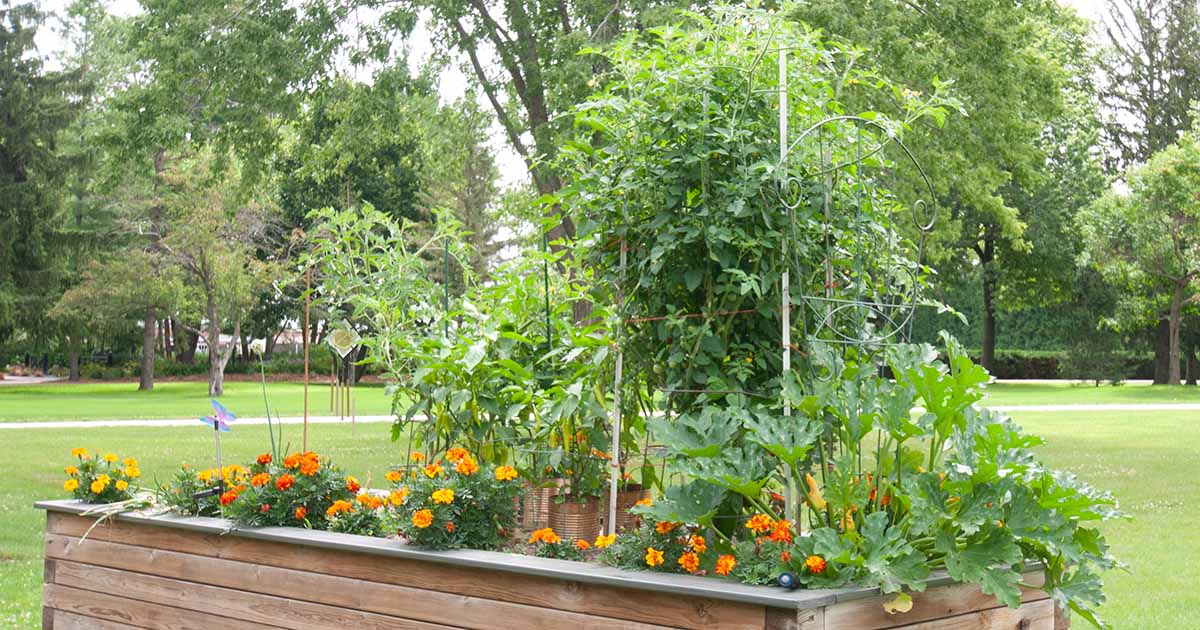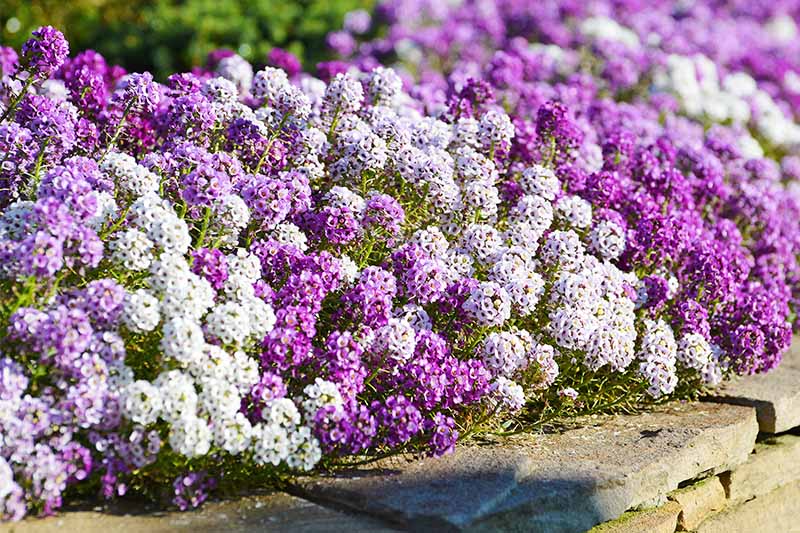The Ultimate Guide To Companion Planting For Berries
The Ultimate Guide to Companion Planting for Berries
Berries are a delicious and nutritious treat that can be enjoyed fresh, frozen, or cooked. They are also a relatively easy crop to grow, but there are a few things you can do to help them thrive. One of the best ways to do this is to practice companion planting.
Companion planting is the practice of planting certain plants together to benefit each other. Some plants can help to attract beneficial insects, deter pests, or improve the soil quality. By choosing the right companion plants for your berries, you can help them to grow healthier and produce more fruit.
In this guide, we will discuss the benefits of companion planting for berries, and provide a list of some of the best companion plants for each type of berry. We will also discuss some of the plants that should be avoided when planting berries.
Benefits of Companion Planting for Berries
There are many benefits to companion planting for berries. Some of the most important benefits include:
- Attracting beneficial insects: Many companion plants attract beneficial insects, such as ladybugs, lacewings, and spiders. These insects help to control pests that can damage berries.
- Deterring pests: Some companion plants can help to deter pests, such as aphids, Japanese beetles, and slugs. This can help to reduce the amount of pesticide use in your garden.
- Improving soil quality: Some companion plants can help to improve the soil quality, making it more nutrient-rich and easier for berries to grow.
- Providing shade: Some companion plants can provide shade for berries, which can help to protect them from the hot sun.
- Compensating for deficiencies: Some companion plants can compensate for deficiencies in the soil. For example, beans can fix nitrogen in the soil, which can benefit berries that need nitrogen.
Best Companion Plants for Berries
The best companion plants for berries will vary depending on the type of berry you are growing. However, some of the most common and beneficial companion plants for berries include:
For blueberries:
- Allium: Alliums, such as garlic, onions, and chives, can help to repel pests and improve the flavor of blueberries.
- Clover: Clover is a nitrogen-fixing plant that can help to improve the soil quality for blueberries.
- Nasturtiums: Nasturtiums can help to attract beneficial insects and deter pests.
- Potatoes: Potatoes can help to suppress weeds and provide shade for blueberries.
For strawberries:
- Borage: Borage is a flowering plant that attracts beneficial insects and improves the flavor of strawberries.
- Cucumbers: Cucumbers can help to repel pests and attract pollinators.
- Marigolds: Marigolds can help to repel nematodes and other pests.
- Nasturtiums: Nasturtiums can help to attract beneficial insects and deter pests.
For raspberries:
- Cucumbers: Cucumbers can help to repel pests and attract pollinators.
- Peas: Peas can help to fix nitrogen in the soil, which can benefit raspberries.
- Spinach: Spinach can help to suppress weeds and improve the soil quality for raspberries.
- Sunflowers: Sunflowers can help to attract beneficial insects and deter pests.
What Not to Plant Near Berries
There are a few plants that should be avoided when planting berries. These plants include:
- Tomatoes: Tomatoes can introduce the fungi responsible for Verticillium wilt, which can be harmful to berries.
- Potatoes: Potatoes can harbor nematodes that can damage berries.
- Eggplants: Eggplants can harbor nematodes that can damage berries.
- Melons: Melons can introduce the fungi responsible for powdery mildew, which can be harmful to berries.
Conclusion
Companion planting is a great way to help your berries thrive. By choosing the right companion plants, you can attract beneficial insects, deter pests, improve the soil quality, and provide shade for your berries. This will help them to grow healthier and produce more fruit.
Companion Planting for Berries
When it comes to growing berries, companion planting can be a great way to improve your harvest. By planting certain plants together, you can attract beneficial insects, deter pests, and improve the overall health of your berry plants.
Some of the best companion plants for berries include:
- Allium: Alliums, such as garlic, onions, and chives, help to repel pests like aphids, spider mites, and nematodes.
- Basil: Basil attracts beneficial insects like ladybugs and hoverflies, which help to control pests. It also helps to improve the flavor of strawberries.
- Borage: Borage attracts pollinators like bees and butterflies, which help to increase fruit production. It also helps to improve the flavor of strawberries.
- Clover: Clover is a nitrogen-fixing plant, which means it helps to improve the soil quality for your berry plants.
- Nasturtiums: Nasturtiums attract pests like aphids and whiteflies, which can help to protect your berry plants. They also help to improve the flavor of strawberries.
Of course, there are also some plants that you should avoid planting near your berries. These include:
- Tomatoes: Tomatoes can harbor the verticillium wilt fungus, which can be fatal to strawberries.
- Potatoes: Potatoes can harbor the nematodes that can damage strawberries.
- Melons: Melons can attract pests that can also damage strawberries.
If you're interested in learning more about companion planting for berries, I recommend visiting Gardenia Inspiration. This website has a wealth of information on the topic, including a list of specific plants that are good companions for different types of berries.
FAQ of companion plants for berries
Question 1: What are companion plants?
Answer: Companion plants are those that are planted together in a garden because they benefit each other in some way. Some companion plants attract beneficial insects, while others help to repel pests. Some improve the soil, while others provide shade or windbreak.
Question 2: What are some good companion plants for berries?
Answer: Some good companion plants for berries include:
- Allium: Onions, garlic, and chives help to repel pests such as aphids, spider mites, and nematodes.
- Beans: Beans fix nitrogen in the soil, which can benefit berry plants.
- Cabbage family: Cabbage, broccoli, and kale can help to repel pests such as cabbageworms and loopers.
- Marigolds: Marigolds help to repel nematodes and other pests.
- Nasturtiums: Nasturtiums attract beneficial insects such as ladybugs and lacewings.
Question 3: How do I plant companion plants with berries?
Answer: When planting companion plants with berries, it is important to consider the size and needs of each plant. For example, tall plants such as marigolds should be planted at the back of the garden, while shorter plants such as chives can be planted in front. It is also important to plant companion plants that have similar water and sunlight needs.
Question 4: What are the benefits of companion planting with berries?
Answer: There are many benefits to companion planting with berries, including:
- Increased yields: Companion plants can help to attract pollinators, which can increase the yield of berry plants.
- Improved pest control: Companion plants can help to repel pests, which can reduce the need for pesticides.
- Enhanced soil health: Companion plants can help to improve the soil quality, which can benefit berry plants in the long run.
Question 5: What are some common mistakes to avoid when companion planting with berries?
Answer: Some common mistakes to avoid when companion planting with berries include:
- Planting incompatible plants: Some plants do not mix well together, so it is important to do your research before planting.
- Planting too closely: Companion plants should be planted far enough apart so that they have enough space to grow.
- Not watering enough: Companion plants need water just like any other plant, so it is important to water them regularly.
Image of companion plants for berries
- Nasturtiums: Nasturtiums are a great companion plant for berries because they attract pollinators and help to deter pests. They also have beautiful flowers that can add color to your berry garden.

- Marigolds: Marigolds are another great companion plant for berries. They help to repel nematodes, which are pests that can damage berry plants. They also have a strong scent that can help to deter other pests.

- Chives: Chives are a good companion plant for berries because they help to improve the flavor of the berries. They also help to deter pests, such as Japanese beetles.

- Pot marigolds: Pot marigolds are a good companion plant for berries because they help to attract pollinators. They also help to deter pests, such as aphids and spider mites.

- Sweet alyssum: Sweet alyssum is a good companion plant for berries because it helps to deter pests, such as slugs and snails. It also has a sweet scent that can help to attract pollinators.

Post a Comment for "The Ultimate Guide To Companion Planting For Berries"